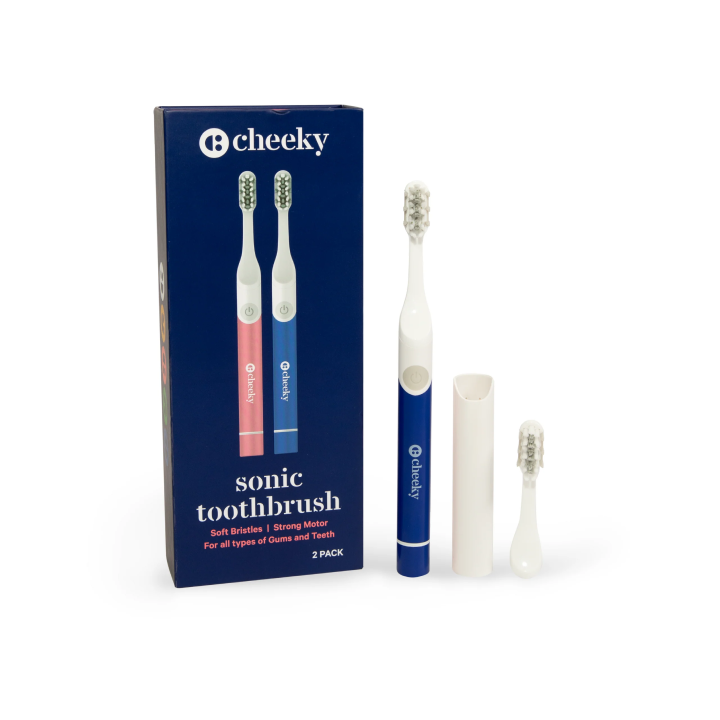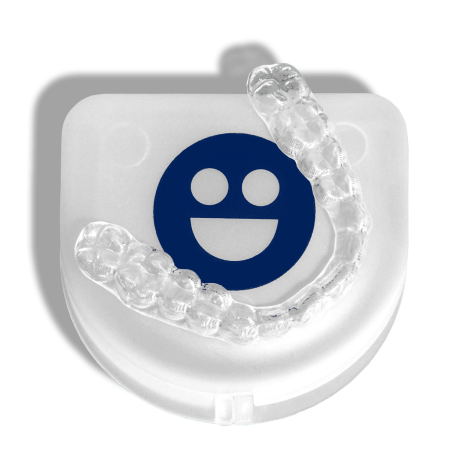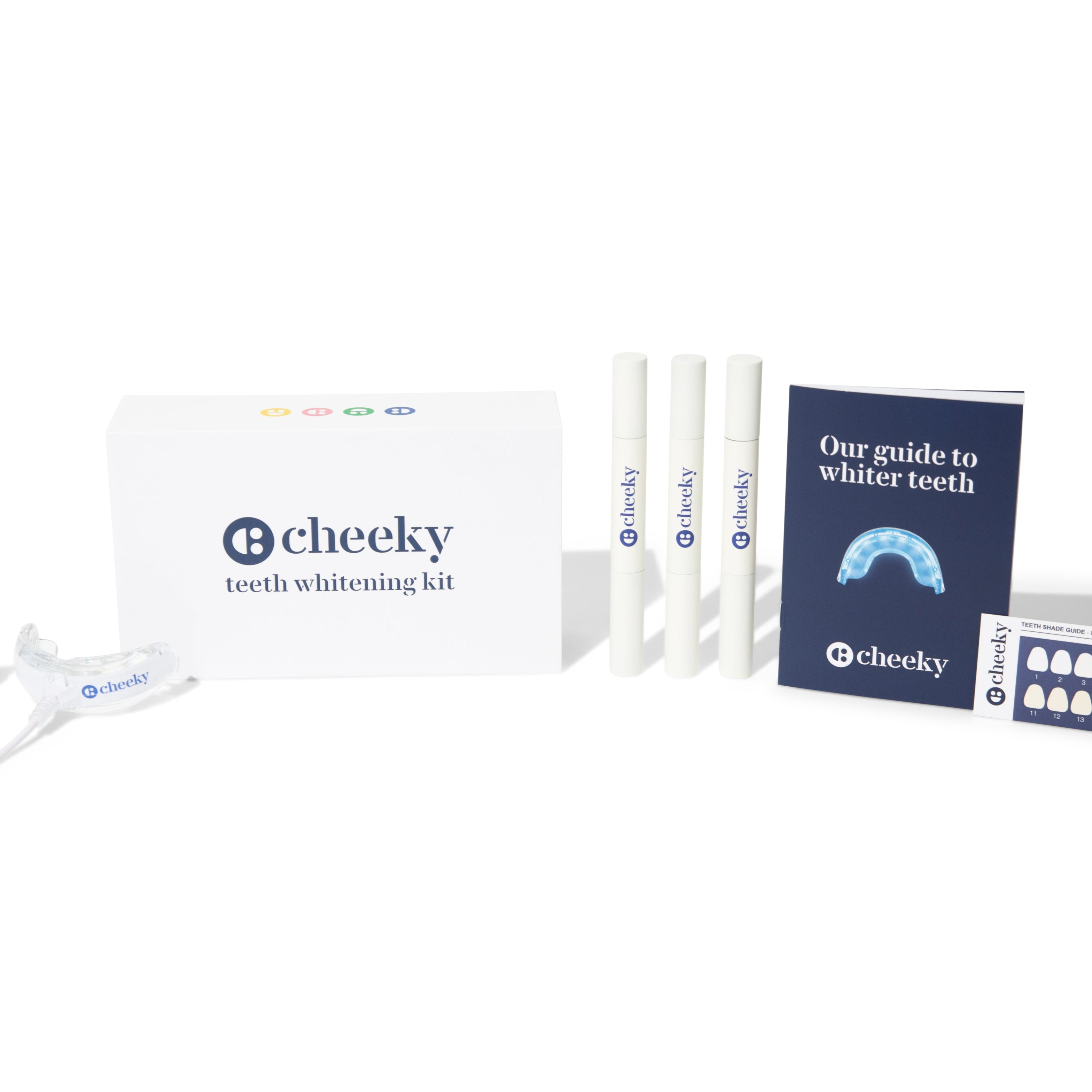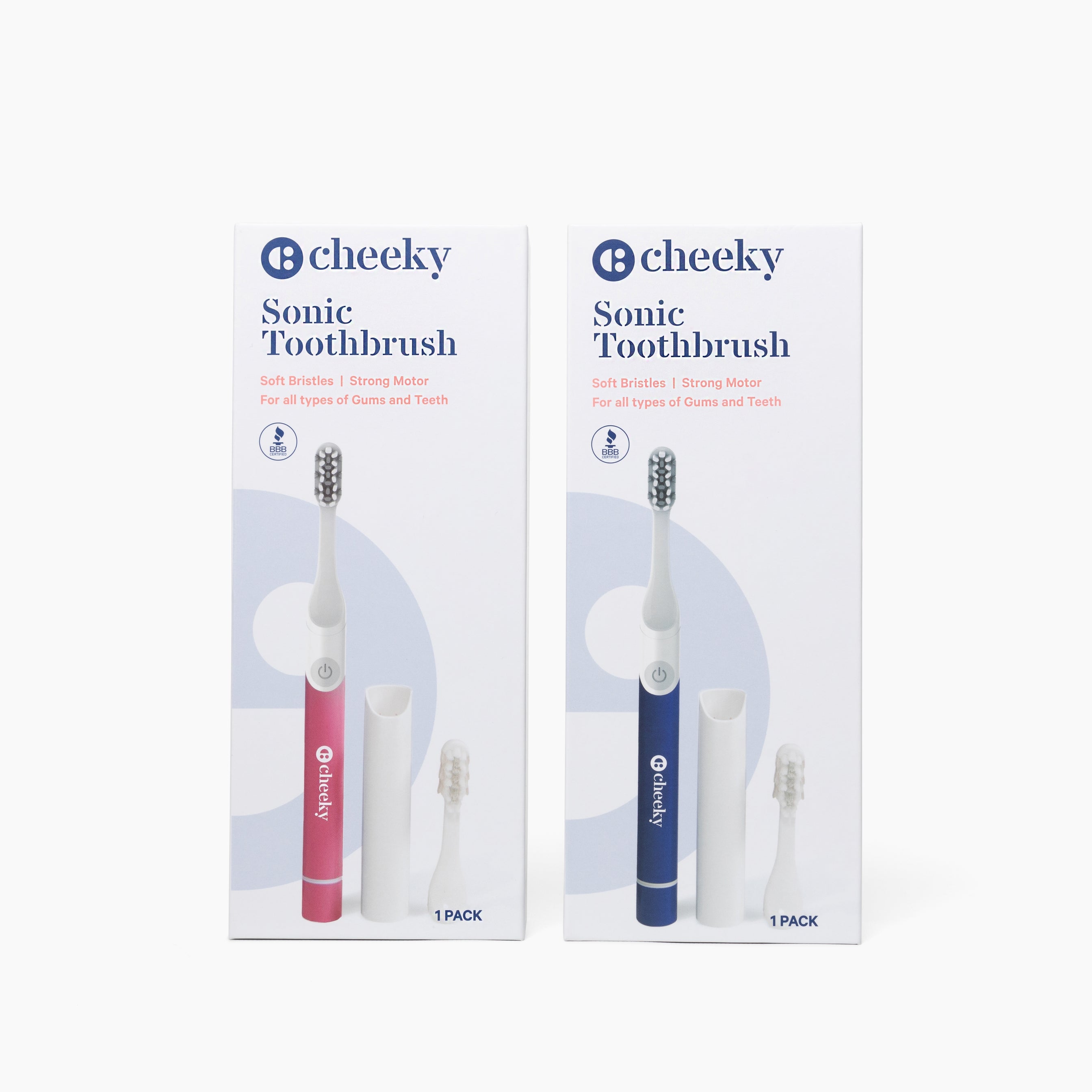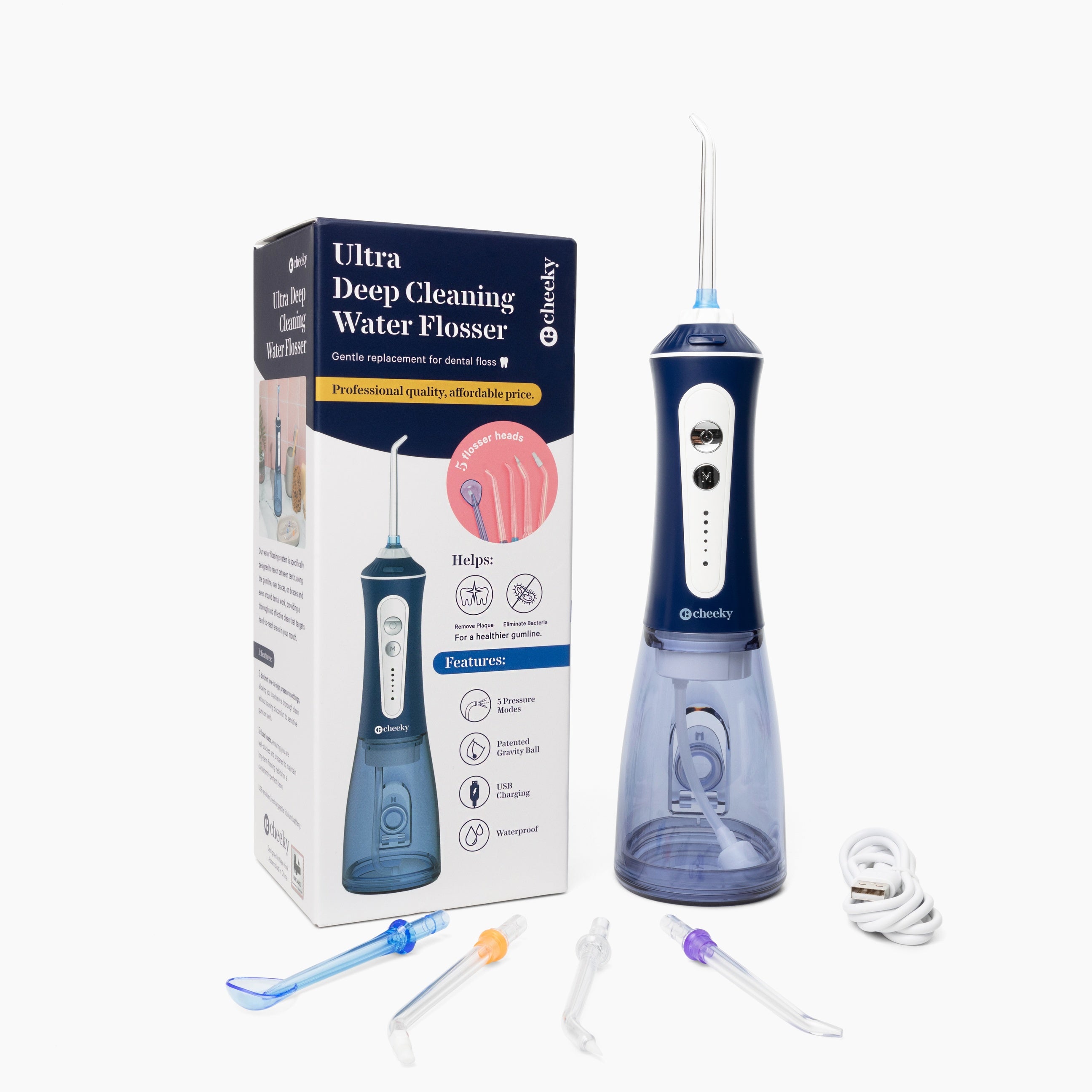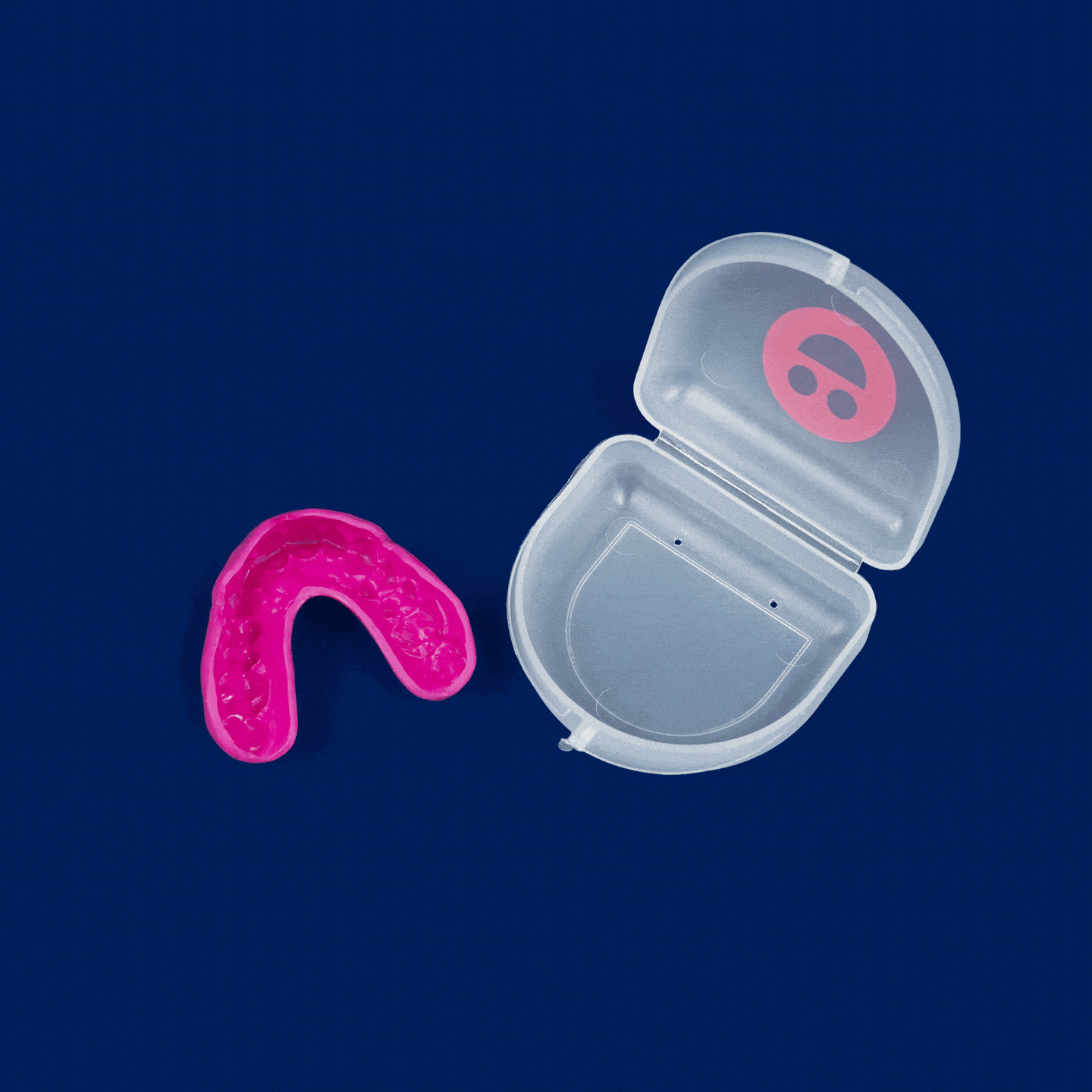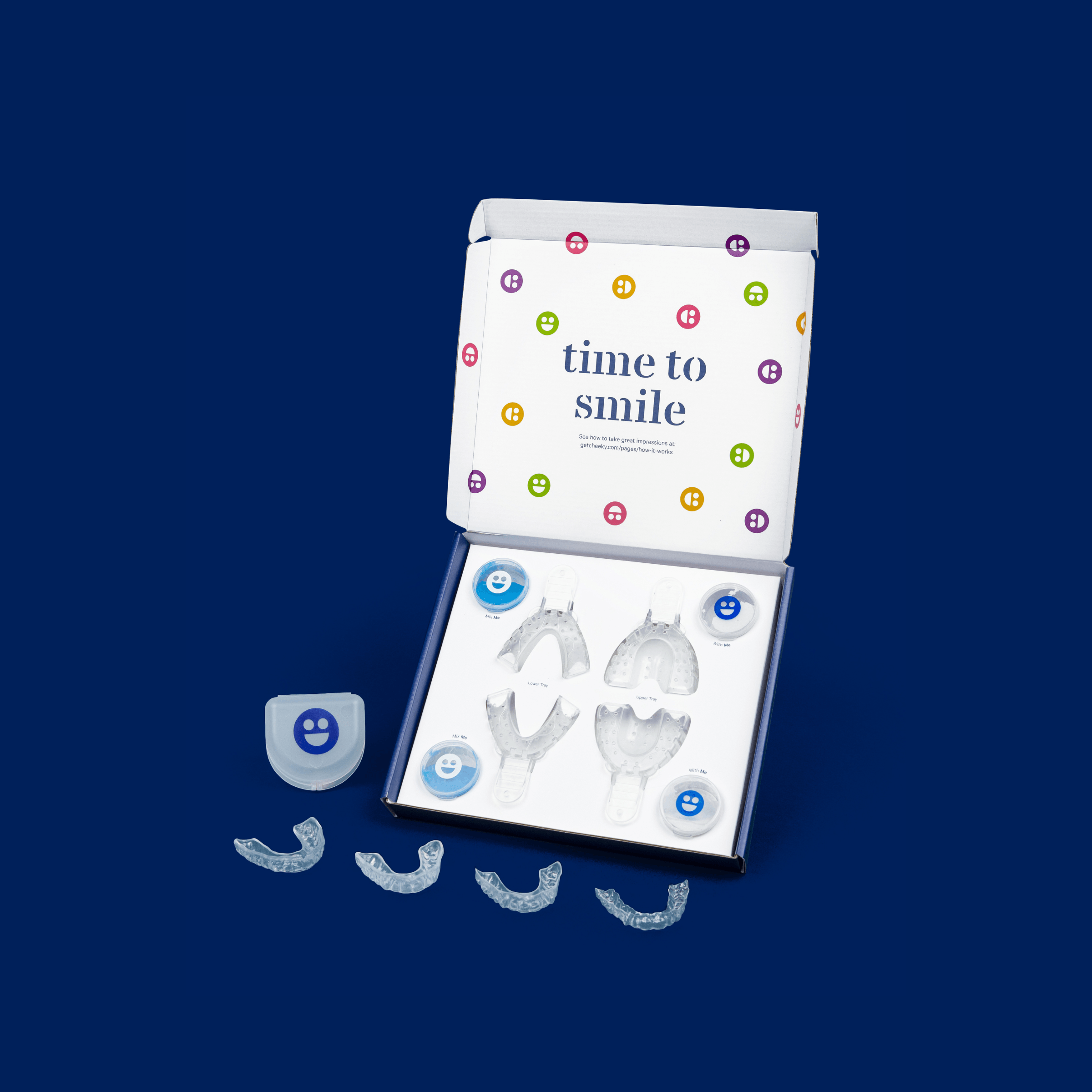Waking up with a headache, an aching neck or a sense of tension and discomfort in the mouth rarely sets anyone up for a positive day ahead. A leading cause of issues such as this is teeth grinding or clenching the jaw overnight.
Some people tense up their jaws due to concentration, anxiety, stress, or even force of habit. However, what can be even worse is when the jaw is brought discomfort while you are asleep, by grinding the teeth, clenching the jaw or other contributing factors.
It might seem an impossible problem – who can get into good habits to help their jaw or teeth while they are asleep, after all? Yet luckily, this is an issue that can be easily remedied with a deeper understanding of the issues – as we’ll explore below.
What’s the medical definition of clenching your jaw overnight?
Clenching the jaw can put excessive pressure on your teeth and facial muscles, as well as its bones. Conditions such as bruxism, as well as temporomandibular joint disorder – better known as TMD or TMJ – show their symptoms as a soreness in your jaw. Unfortunately, that soreness comes from teeth grinding, often while you’re sleeping.
You might be unaware you even have TMD or bruxism, aside from an inexplicable feeling of discomfort some mornings that you have quietly adapted to as ‘part of life’ over time. It might be that your partner or a medical professional has brought up this tendency to clench the jaw and grind your teeth – but there is no need to feel embarrassed.
It all comes down to protecting your teeth or finding the means by which to relax your jaw when settling in for the night – from a night guard to a shift in lifestyle. There are a number of proven remedies out there to help you overcome bruxism and TMJ brought on by overnight teeth grinding.
How to relax the jaw and stop bruxism
Clenching the jaw and grinding the teeth seldom happens as a conscious action. Instead, we usually experience it due to subconscious cues – while it’s happening, we are often deep in thought, or perhaps even worrying.
Finding methods by which to let go of the day when it’s over can help a great deal here – from mindfulness techniques and ways to destress, to journaling thoughts on what’s causing you anxiety and placing them out of sight, and hopefully out of mind.
However, you can take more practical steps too. Your doctor or another medical professional can advise you on choosing a localized and gentle muscle relaxant that can help relieve tension all over your body when you’re ready to sleep – as well as in your jaw.
Sometimes, wearing a custom mouth guard can also help. With a mouth guard, you have the full protection you need to make sure you aren’t teeth grinding and clenching your jaw while you’re asleep – and modern night guard designs are built for comfort and discretion.
What home remedies will stop me clenching my jaw at night?
It may not be the case that you need a muscle relaxant or a night guard in order to enjoy a restful night’s sleep – free from bruxism and TMD. In fact, home remedies remain highly effective today in helping the issue.
The key is to make such jaw relaxing exercises a part of your nightly ritual for getting ready for bed. In front of the bathroom mirror after brushing your teeth, or sitting on your mattress before you put your feet up to lie down, are good examples of when to fit these exercises in.
You might find success by resting the tip of your tongue against the back of your upper teeth, and then opening and closing your mouth a few times. This works out the muscles in your jaw just enough to hopefully avoid them clenching overnight.
Another good way to avoid teeth grinding and jaw clenching when you’re asleep is to do a few broad smile exercises. They involve opening your mouth a couple inches, inhaling deeply and smiling all the while.
Release your grin as you exhale. It might feel a little funny, but these exercises beat the likes of bruxism and TMJ by stretching your jaw and face muscles before you rest for the night.
Plus, if you have things on your mind at night, even faking a smile as per this exercise can lift the spirits – perhaps helping you leave your troubles behind for the night as you drift off for a restful slumber.
Should I get a custom mouth guard for when I’m sleeping?
As you discuss your bruxism and TMD with a doctor, dentist or medical professional, you may agree with them that muscle relaxant prescriptions or jaw exercises aren’t sufficient, or appropriate, for your situation.
Alternatively, you might simply prefer a more practical and tangible way to solve the problem of teeth grinding while you’re asleep at night. A night guard is often very effective in patients when it comes to encouraging the jaw to relax, and preventing teeth grinding while you’re resting.
You may also find that a custom mouth guard is recommended by your doctor or dentist simply to prevent teeth grinding overnight in the medium term – and then introducing lifestyle changes like the ones we have highlighted in today’s article to complement the night guard.
Left unchecked, and without even a night guard to help stop the jaw clenching overnight, you may well find that a good night’s sleep simply isn’t leaving you well rested.
If you’re already seeing earaches, tension headaches and other symptoms caused by TMJ and bruxism developing during your waking hours, it’s wise to seek medical assistance – especially if the home remedies above do no good.
Remember, this is an issue often linked to stress and anxiety. While the modern world certainly likes to hand each of us a huge helping of both from time to time, TMD and bruxism don’t need to steal the restorative qualities of your sleep.
The Easy Way to Take Care of Bruxism and TMD
Cheeky makes it easy and affordable to say sayonara to the pain and tension accompanying TMD and bruxism. Never deal with gross night guards again! Our custom nightguards will give you the best night of sleep you’ve had in months.
Pick your plan and customize your nightguard with Cheeky today.


